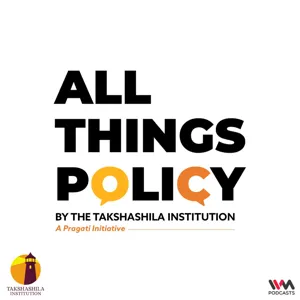Podcast Summary
Section 230: Allowing the Internet to Function as a Platform for Communication and Expression: Section 230 of the Communications Decency Act is a foundational law for modern Internet platforms, protecting them from liability for illegal content and enabling content moderation while maintaining free speech.
Section 230 of the Communications Decency Act is a crucial law for the functioning of modern Internet platforms. It places the liability for illegal content on the person posting it, rather than the platform hosting it. Additionally, it allows platforms to moderate content without being held liable for their moderation decisions. This law, which has been in place since 1996, has been a subject of intense debate due to its implications for free speech and content moderation. My guest, Mike Masnick, founder and editor in chief of TechDirt, explains that this law is simple yet important, as it allows the Internet to function as a platform for communication and expression while ensuring that those who violate the law are held accountable. The recent news surrounding Twitter, the president's tweets, and the executive order on online censorship are just the latest developments in this ongoing debate.
Protecting Websites from User-Generated Content Liability: Section 230 of the Communications Decency Act shields websites and online platforms from legal responsibility for user-generated content, enabling them to moderate as they see fit without fear of lawsuits.
Section 230 of the Communications Decency Act, which was enacted in response to a court case involving Prodigy and Stratton Oakmont, is a crucial law that protects websites and online platforms from being held liable for user-generated content. This law allows platforms to moderate content as they see fit without fear of legal repercussions, as long as they do so in good faith and in accordance with their terms of service. The debate over whether platforms are publishers or mere hosts of content is meaningless under the law, and the law's protections apply equally to all interactive computer services that host third-party content. This law has been a significant factor in the growth and thriving of the modern Internet and free speech online.
Two recent Twitter cases illustrate the complexities of Section 230 in the digital age: Section 230 protects platforms from liability for third-party content but not their own, allowing for fact-check labels and limiting engagement on potentially harmful posts.
Section 230 of the Communications Decency Act continues to be a complex and evolving issue in the digital age. In two recent cases at Twitter, the platform used different methods to address potentially harmful content. In the first instance, Twitter added a fact-check label and linked to third-party sources to provide context for a controversial tweet from a politician. This action falls under the protection of Section 230, which allows for the hosting of third-party content without being held liable for it. However, any content directly originating from the platform itself is not protected by Section 230 and is subject to the First Amendment. In the second case, Twitter kept up a tweet that violated its terms of service due to its potential to incite violence but limited the ability for users to engage with it. This action was also allowed under Section 230, as it did not involve the removal of content. Overall, these cases demonstrate the ongoing importance of Section 230 in regulating online speech and the challenges that come with its application in real-world situations.
First Amendment and Internet Companies: The First Amendment doesn't apply to private companies like Twitter, and internet services are not commodities, but unique edge providers. Public forum arguments for no moderation have been unsuccessful in lawsuits.
The First Amendment protects individuals from government infringement on their speech, not private companies like Twitter. The phone company analogy, often used to argue for regulation of internet companies, doesn't hold up because internet services, such as Twitter, are not commodities but edge providers with unique features. The public square or public forum argument, which suggests that internet companies shouldn't moderate content, has consistently failed in lawsuits. Despite these distinctions, debates around net neutrality and the role of internet companies continue to draw parallels and reversed positions.
Private companies are not allowed to be considered public squares or subject to state action despite common misconceptions: Private companies like Twitter, Facebook, and YouTube have the right to regulate user content and enforce their own rules without being considered public forums or subject to state action
Private companies like Twitter, Facebook, and YouTube do not qualify as public squares or have state action involved in their operations, despite some common misconceptions based on court cases like Pruneyard and Packingham. These cases only apply in very specific circumstances where private entities are replacing government functions. The Manhattan News Network case, decided last summer, further clarified that private companies do not offer services that were traditionally exclusive to the government. Therefore, these companies have the right to regulate user content and enforce their own rules without being considered public forums or subject to state action.
FCC has no legal authority to regulate websites: The FCC cannot regulate websites despite the recent executive order as per the long-standing ACLU vs. Reno case, and its jurisdiction does not extend to them.
The recent executive order regarding online content moderation may ask the Federal Communications Commission (FCC) to reinterpret its jurisdiction over the internet, but the FCC has no legal authority to regulate websites as per the long-standing ACLU vs. Reno case. The FCC can only make rulemaking and interpret existing laws, but it cannot create new laws or have the power to enforce regulations on websites. The executive order instructs the National Telecommunications and Information Administration (NTIA) to request the FCC to act, but the FCC is not obligated to do so. The rulemaking process can be lengthy and fraught with distractions, and the comment system can be filled with bots and nonsense. The FCC's jurisdiction does not extend to websites, and Congress has never given the FCC the authority to regulate them.
Misinterpretation of Section 230 in recent executive order: The recent executive order contains a misinterpretation of Section 230, attempting to apply the good faith limitation to the third-party liability aspect, which is not applicable.
The recent executive order regarding Section 230 of the Communications Decency Act contains a misinterpretation of the law. The order suggests that the limitations on moderation under Section 230, which allows platforms to remove content in good faith, applies to the part of the law that protects platforms from liability for third-party content. However, these two provisions have always been distinct, and the good faith limitation has never been applied to the third-party liability aspect of Section 230. Furthermore, the order instructs the attorney general to draft a state law to reinterpret Section 230 in a way that diminishes its power, despite the fact that the law does not limit federal criminal liability for platforms hosting illegal content. These actions could be seen as an attempt to manipulate the interpretation of Section 230 in bad faith. Other aspects of the order include the potential for increased regulation of social media platforms and the creation of a new regulatory body to oversee online content.
Executive order raises concerns for tech companies: The executive order may lead to regulations on tech companies' use of encryption and receipt of government ad dollars, potentially impacting their content moderation and facing constitutional challenges
The recent executive order signed by the President has raised concerns about potential regulations on tech companies, particularly regarding their use of encryption and their receipt of government advertising dollars. The order has limited jurisdiction, as the FCC has limited power over websites, and any legislation that may result could face significant constitutional challenges. The potential loss of 230 protections for companies offering end-to-end encryption is a significant point of contention, and some believe it could be used as a tactic to intimidate tech companies into limiting their content moderation. However, the actual impact of the order on tech companies' revenues is minimal, as only a small fraction of their revenue comes from government advertising. The order's implications are far-reaching and complex, and the outcome remains uncertain.
Impact of Section 230 executive order on Census Bureau's social media advertising: The Census Bureau's use of social media advertising for the 2020 census may be affected by the recent executive order on Section 230, adding complexity to the ongoing debate about content moderation and its impact on free speech.
The recent executive order regarding Section 230 of the Communications Decency Act and its impact on social media advertising raises concerns about the potential limitation of the Census Bureau's ability to collect data for the 2020 census. This is because the Census Bureau uses social media advertising to reach a large audience and encourage people to fill out their forms. The broader debate around content moderation adds complexity to the issue, as there are criticisms of both over-moderation and under-moderation. Mike Masnick, a tech industry analyst, humorously referred to this as the "Masnick impossibility theorem," stating that it is impossible to do content moderation perfectly due to the subjective nature of the decisions involved and the inevitable dissatisfaction of those whose content is moderated. Ultimately, finding a balance in content moderation that satisfies all parties remains a significant challenge.
The imperfect process of content moderation: Section 230 allows platforms to experiment with moderation approaches, but its removal could have unintended consequences, impacting smaller players and entrenching larger companies.
Content moderation, whether done by humans or AI, is an imperfect process with mistakes inevitable, especially when dealing with massive volumes of content. Section 230 of the Communications Decency Act plays a crucial role in allowing various platforms to experiment with different moderation approaches, from Wikipedia's community-driven editing to Reddit's subreddit-specific rules. This law applies to all websites, big and small, and its potential removal could lead to unintended consequences, such as disproportionately impacting smaller players and further entrenching larger companies. The ongoing debate around content moderation underscores the need for continued dialogue and exploration of effective solutions.
Executive order may limit competition for new social media platforms: The proposed regulations in the executive order could make it difficult for new startups and smaller websites to compete with established social media platforms, potentially stifling innovation and choice.
The proposed regulations in the executive order regarding social media platforms could limit competition and make it difficult for new startups and smaller websites to exist. This is despite the order's claim that there are only a limited number of social media sites. The order also conflates ownership and company size, and some propose a decentralized, community-owned approach using cryptocurrency as a solution. However, this is not a panacea as it still requires various governance approaches and experimentation to determine what works best for different communities and services. The importance of allowing freedom to make choices and experiment is crucial in determining the best results for various purposes and services.
Content Moderation Rules Under Attack: The US executive order is part of a larger trend of legislation aiming to regulate content moderation, with uncertain outcomes for free speech
The rules governing the internet, specifically content moderation, are under attack and facing significant changes. The recent executive order in the US may not bring about immediate changes, but it's part of a larger trend of legislation aimed at regulating content moderation. While some argue that these changes will protect free speech, others worry that they could limit it in the long term. The outcome remains uncertain, but it's clear that the way we moderate content online is undergoing a significant shift. This trend is not limited to the US and is likely to continue shaping the internet landscape for years to come.




